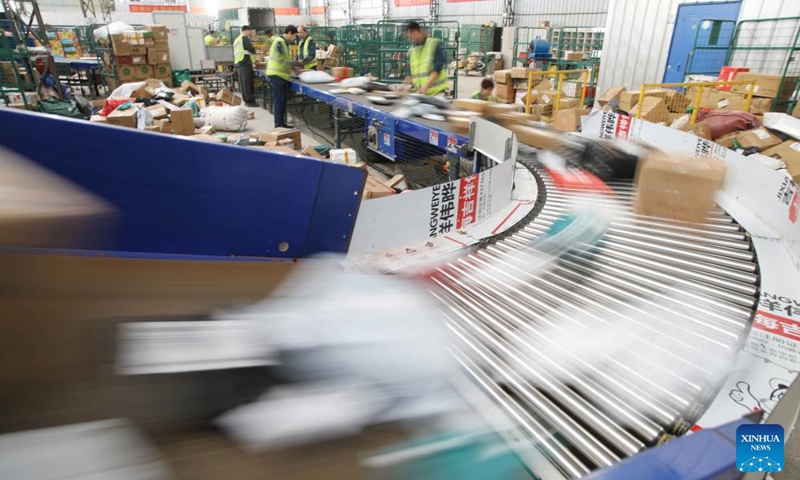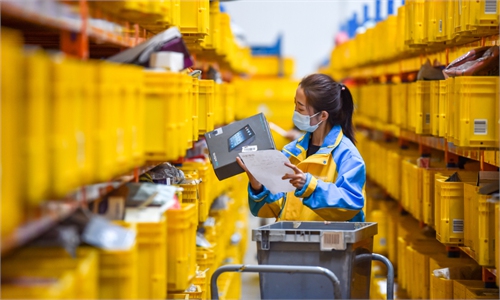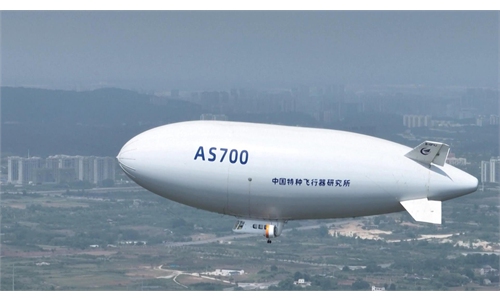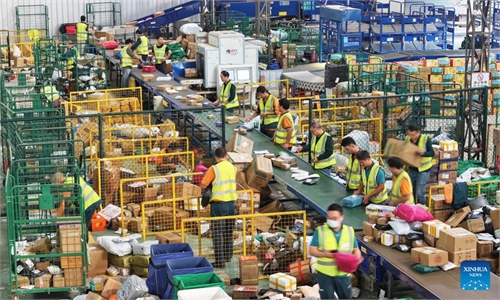China’s e-commerce giants report robust sales during 2024 'Double 11' shopping festival

Staff members sort packages at a logistic center of Daoxian branch of China Post in Daoxian County, central China's Hunan Province, Nov. 11, 2024. Manufacturers, e-commerce platforms and logistics companies across the country are busy coping with consumer's demand during China's annual "Double 11" shopping festival.(Photo:Xinhua)
Chinese e-commerce giants Alibaba and JD.com reported very strong sales during the 2024 "Double 11" shopping festival, which came to a close on Monday, as China's consumer market continues to recover steadily.
Taobao and Tmall, run by Alibaba Group, reported a significant increase in sales as of 12 pm on Monday during the 'Double 11' shopping event, with 589 brands exceeding 100 million yuan in sales, representing 46.5 percent increase over a year ago. Notably, the consumer participation in this year's event reached a historic high, the company said.
JD.com, based in Beijing, stated that by 11:59 pm on Monday, its live-streaming sales rose 3.8 times from a year ago, with over 17,000 brands achieving more than fivefold growth in sales. The number of buyers also rose by more than 20 percent, with up to 30,000 small and medium-sized merchants on the site doubling their sales compared to the previous year.
Both platforms have integrated government subsidies into their promotional strategies, effectively stimulating consumer spending.
Taobao and Tmall reported growth across many sectors, including home appliances and decoration, which has led to over 139 brands surpassing the 100-million-yuan sales threshold, while 9,600 brands saw their sales double from a year ago.
JD.com reported that during the "Double 11" event, over 90 percent of rural consumers participated in the trade-in program, with large-screen TV sets being the most popular choice for them. The sales of home appliance items, including smart robotic vacuums and dryers, saw a 200-percent year-on-year growth, while sales of AI products like AI computers and smartphones rose over 100 percent in sales.
Many consumers purchased clothing, with sales of down jackets, outdoor jackets, and cotton underwear doubling compared to the previous year, according to JD.com.
Both platforms have used AI means to help merchants achieve higher efficiency and profits.
With the support of JD's AI assisted human live streaming, more than 7,500 brands have achieved significant sales growth, resulting in a 40-percent increase in transaction volume compared to the previous "June 18" shopping festival. The volume of inquiries to intelligent customer services has exceeded 3.6 billion, according to the platform.
Taobao and Tmall's AI-powered e-commerce toolkit has served 4 million merchants since October 1, reducing their marketing expenses by generating some 100 million marketing images, videos, and texts.
The toolkit also assisted more than 800,000 merchants to perform analytics on 2 million instances of web traffic to reach consumers. With the help of the AI-powered marketing tools, nearly 290,000 merchants benefitted with rising growth in commodity sales.
The "Double 11" shopping spree also saw robust consumption of imported goods. Tmall Global reported a doubling of sales for over 2,300 imported commodities.
JD.com said that 70 percent of the imported food products on the platform are new offerings. The expansion has led to a surge in sales, with some coffee products experiencing an increase of more than 20 times in sales from a year ago, while ice cream brands saw a twofold sales growth.
According to the State Post Bureau, from October 21 to November 10, express deliveries in Chinese mainland exceeded 12 billion parcels. The highest daily processing volume reached 729 million parcels, marking a 74 percent year-on-year increase and setting a new record for single-day deliveries.
Global Times



